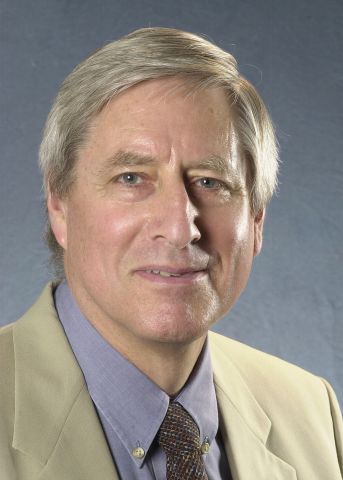Christopher R. Browning Named the 2017-2018 Shapiro Scholar in Residence

“We are excited to welcome Christopher Browning, one of the most internationally renowned scholars of the Holocaust, to the Center this Spring. With his book Ordinary Men, he influenced generations of scholars regarding the motivation of mass murderers. With Remembering Survival, he convinced many traditional historians of the usefulness of video testimonies in reconstructing the unwritten history of a forced labor camp during the Holocaust and its complex human relationships.”
Born in Italy and educated at Oberlin College and the University of Wisconsin-Madison, Christopher R. Browning is the Frank Porter Graham Professor Emeritus of History at the University of North Carolina at Chapel Hill. His research concerns the decision-making and policy-making behind the Nazi Final Solution, analyzed in his books The Final Solution and the German Foreign Office (1978), Fateful Months : Essays on the Emergence of the Final Solution (1985), Ordinary Men: Reserve Police Battalion 101 and the Final Solution in Poland (1992), The Path to Genocide: Essays on Launching the Final Solution (1992) and The Origins of the Final Solution: The Evolution of Nazi Jewish Policy, September 1939–March 1942 (2004).
Professor Browning has also written about the behavior and motives of middle and lower-echelon personnel in its implementation in Nazi Policy, Jewish Workers, German Killers (2000). He helped edit and contextualize the personal letters compiled in Everyday Lasts a Year: A Jewish Family's Correspondence from Poland (2007), and investigated how to reconcile the differing “collected memories” of perpetrators and survivors in Collected Memories: Holocaust History and Postwar Testimony (2003). His most recent publication, Remembering Survival: Inside a Nazi Slave Labor Camp (2010), utilizes survivor testimony to analyze Jewish resistance and survival strategies during the Holocaust and won the 2011 Yad Vashem International Book Prize for Holocaust Research.
Professor Browning is one of the world’s most renowned Holocaust scholars and a proponent of the “moderate functionalist” school of thought in the origins of the Holocaust debate, which emphasizes the importance of the structure and function of the Third Reich in the Jewish extermination effort over focus on Hitler. He served as a witness for the defense of Deborah Lipstadt in the libel case Irving v. Penguin Books and Lipstadt (2000), in which he argued against David Irving that the lack of a written Fuhrer order mandating the Final Solution does not disprove the Holocaust.
Intended to inspire prominent scholars, the Sara and Asa Shapiro Annual Holocaust Testimony Scholar and Lecture Fund enables one senior scholar to spend time in residence at the USC Shoah Foundation Center for Advanced Genocide Research. This prestigious fellowship is only available through an invitation by staff at the Center.
The fellowship, which replaces the USC Shoah Foundation Yom Hashoah Scholar in Residency, offers fellows the opportunity to use the Holocaust and genocide resources at USC, including the USC Shoah Foundation’s Visual History Archive, which contains more than 55,000 testimonies of witnesses and survivors of the Holocaust, including the testimony of Sara Shapiro.
Browning is the third Shapiro Scholar in Residence, following 2016-2017 Shapiro Scholar Omer Bartov and inaugural Shapiro Scholar David Cesarani, who passed away just weeks after being awarded the fellowship and for whom the USC Shoah Foundation hosted a symposium honoring his life and work in lieu of the lecture.
Details concerning Professor Browning’s lecture will be announced soon.